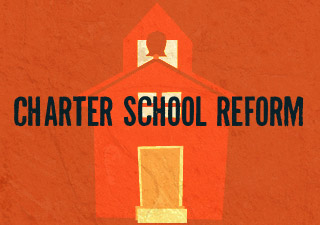Media
Top 5 Charter School Myths
 Session days in the Pennsylvania legislature are dwindling, but the assembly still has time to pass essential reforms to how charter schools are run. The valuable reforms contained in SB 1115, however, have stirred up some evergreen myths about charter schools. Below are five of the most common ones, and why they are wrong:
Session days in the Pennsylvania legislature are dwindling, but the assembly still has time to pass essential reforms to how charter schools are run. The valuable reforms contained in SB 1115, however, have stirred up some evergreen myths about charter schools. Below are five of the most common ones, and why they are wrong:
1. Charter schools aren’t accountable. It’s true that charter schools don’t have to follow every single regulation that regular public schools do—but that’s the point. Charter schools are public schools, but they are independent schools that a group of parents, teachers or other community organizations form. They are designed to meet urgent educational needs without the encumbrance of needless regulation.
Charter schools still have many major regulations to follow, such as submitting to annual state, federal and financial audits, and are accountable to taxpayers and voters through regular review of their charters. Furthermore, charter school administrators are public officials subject to the state’s Ethics Act. SB 1115 would add further ethics safeguards and prevent conflicts of interest.
In many ways, charter schools are actually more accountable than public schools. They are accountable first to parents. They don’t get a single dime in funding unless parents choose a charter school for their child rather than the assigned local school.
Ultimately, bad charter schools can have their charters revoked and be shut down—something that never happens, but should, with district schools.
2. Charter schools exist simply to line the pockets of for-profit corporations. This is a particularly curious accusation, given that charter school law states that “a charter school must be organized as a public, non-profit corporation. Charters may not be granted to any for-profit entity.” If the accusation stems from schools seeking certain services from outside vendors—for food, transportation or textbooks—then school districts are guilty of profiteering, too.
3. Charter schools don’t have to accept all students. To quote Vice President Joe Biden, this is a bunch of malarkey. Existing charter school law states that charter schools “shall not unlawfully discriminate in admissions, hiring or operation,” and must be non-sectarian. Charter schools may focus on math, science or art according to the provisions of their charter, but otherwise must accept all students—including those in special education. For the most part, they serve low-income, poorly performing students from failing public schools, which is why they are a popular alternative for parents.
4. Students in charter schools don’t take state achievement tests like those in regular public schools. Charter schools are required to participate in the Pennsylvania System of School Assessment (PSSA), administered in Grades 3-8 and 11. Their scores are posted online with every other publicly funded school. In fact, until the latest round of testing, charter schools were held to a higher standard than school districts, though they frequently have the multiple age groups and high enrollments of school districts.
5. Charter schools get too much money, and don’t have the same limits on fund balances that public schools do. We’ve addressed the “too much money” trope before—charter schools are reimbursed with the same formula statewide, at a fraction of what a student in a particular school district receives. But what charter schools get is simply a function of what school districts spend: Each school district is different, so it means charter schools get varied reimbursements per student as well.
School districts also claim charter schools don’t have fund balance limits, which are caps on how much funding they can keep in reserve. The 12 percent cap on total expenditures for school district applies only when the school districts raise taxes. As of June 2011, 117 school districts had fund balances exceeding the cap, and Pennsylvania’s 500 school districts had amassed $3.2 billion in total reserves. Moreover, charter schools have found that school districts often delay paying charter schools for the resident students who left their schools, making fund balances essential to keep charter schools running.
SB 1115 would not only create a funding commission to assess how charter schools are funded, but would allow charter schools to receive the payment they’re owed directly from the state if they so choose.
Some 100,000 students now attend charter and cyber schools in Pennsylvania, proving they are a popular form of public school for families. Updates to charter school law are due, and SB 1115 provides them, but we shouldn’t accept punitive restrictions on charter schools designed only to protect special interest groups.